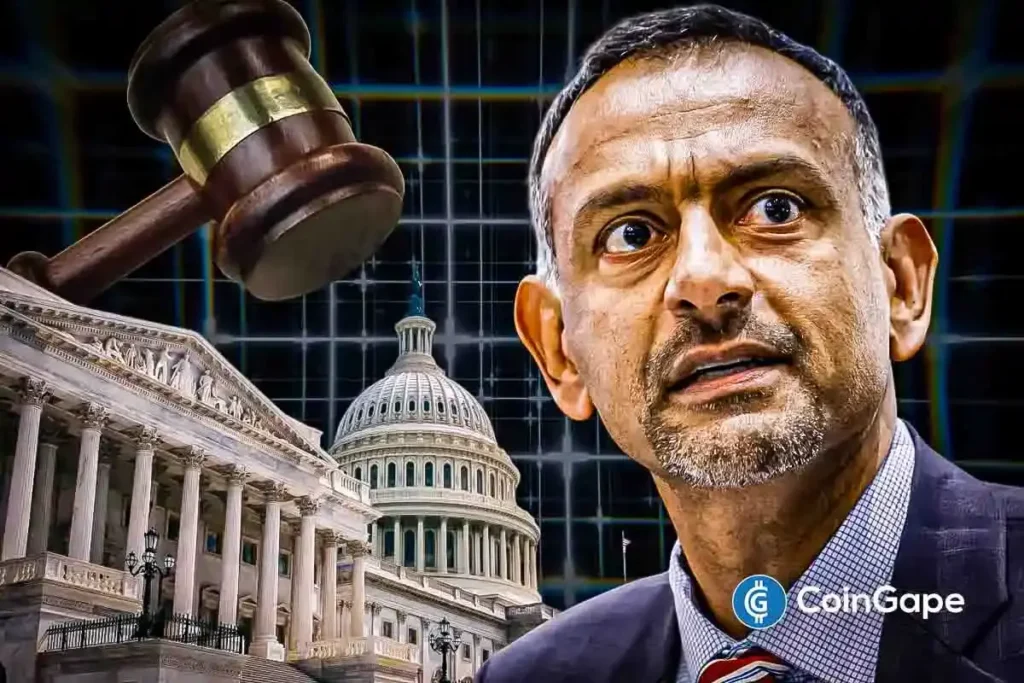Title: Tensions Rise: Coinbase’s Legal Standoff and Political Allegations Involving Senator Chris Murphy
In a recent controversy, Coinbase’s Chief Legal Officer, Paul Grewal, has taken a strong stance against U.S. Senator Chris Murphy, who accused the cryptocurrency exchange of corruption linked to former President Donald Trump. In a detailed post shared on X, Senator Murphy claimed that Coinbase contributed $46 million to benefit Trump’s campaign, insinuating a political favor in relation to the SEC’s ongoing lawsuit against the exchange. These allegations have not only stirred up debate across the cryptocurrency and political arenas but have also shed light on the regulatory landscape surrounding digital assets.
Murphy’s Claims and Grewal’s Rebuttal
Senator Murphy characterized his allegations as a quintessential example of "Trump’s corruption factory," suggesting that Coinbase’s significant financial donations fueled Republican campaigns and resulted in favorable treatment from regulatory bodies. Grewal swiftly rebutted these claims, describing them as “misinformed” and “false.” He urged Murphy to conduct deeper research, reiterating that Coinbase has consistently pursued regulatory clarity instead of political favors. This emphasis on transparency underscores Coinbase’s commitment to maintaining solid partnerships while navigating a complex regulatory environment.
Expanding Partnerships Amidst Regulatory Challenges
Despite facing scrutiny, Coinbase has been proactive in forging strategic collaborations aimed at enhancing its service offerings. One notable development is the partnership with Citigroup, designed to facilitate stablecoin payments. This move aligns with Coinbase’s broader strategy of fostering compliance and growth within the digital asset ecosystem. Additionally, Grewal pointed out the challenges posed by the SEC’s actions, noting that the commission allowed Coinbase’s initial public offering (IPO) while later labeling its operations as illegal. This contradiction raises pressing questions around the regulatory consistency that cryptocurrency firms face.
SEC’s Handling of Regulation Scrutinized
Grewal’s criticisms extend to the SEC’s regulatory approach, which he has described as arbitrary and capricious. He specifically pointed out a federal court’s ruling that deemed the SEC’s denial of Coinbase’s rulemaking petition as inconsistent with legal standards. The evolving political landscape, especially during Trump’s presidency, has been seen as a double-edged sword for cryptocurrency firms. While some regulations have loosened, others remain oppressive. Coinbase has continued to thrive, recently partnering with Figment to improve staking capabilities across multiple blockchain networks like Solana and Cardano.
A Broader Discussion on Regulatory Consistency
The discourse surrounding these allegations has been amplified by remarks from John Deaton, a lawyer known for his advocacy on behalf of XRP holders. Deaton criticized the SEC for its contradictory actions—approving Coinbase’s IPO only to later deem its business model illegal. This hypocrisy illustrates a troubling trend in the regulatory framework, suggesting that political motivations may undermine the integrity of regulatory bodies. Deaton’s comments also emphasized the need for regulators to prioritize innovation over political agendas, advocating for a balanced approach to cryptocurrency regulation.
Political Underpinnings Influence Industry Dynamics
As the situation unfolds, it is clear that political dynamics play a significant role in shaping the future of cryptocurrency regulation in the U.S. Amidst accusations from figures like Senator Murphy, the narrative has brought attention to more significant questions about the SEC’s regulatory framework and its relationship with cryptocurrency firms. Grewal’s and Deaton’s responses underscore the call for a regulatory environment that fosters innovation rather than stifling it through partisan motivations. With the landscape shifting with each election cycle, industry players are increasingly vocal about needing a fair and impartial regulatory approach.
In conclusion, the heated exchange between Coinbase’s leadership and Senator Murphy highlights the intricate interplay of politics, regulation, and the cryptocurrency industry. As the SEC’s actions come under further scrutiny, both parties will likely continue to navigate the complexities of this evolving landscape, advocating for their respective interests while aiming to foster a more robust and compliant digital asset environment. The implications of these discussions will reverberate throughout the industry and could shape future regulations that govern cryptocurrencies. As public interest grows, consumers and investors alike will be watching closely to see how these issues impact the broader crypto market.
















